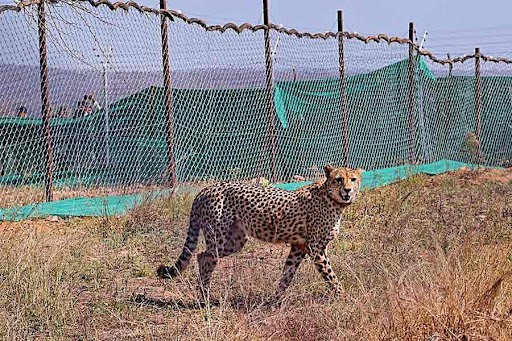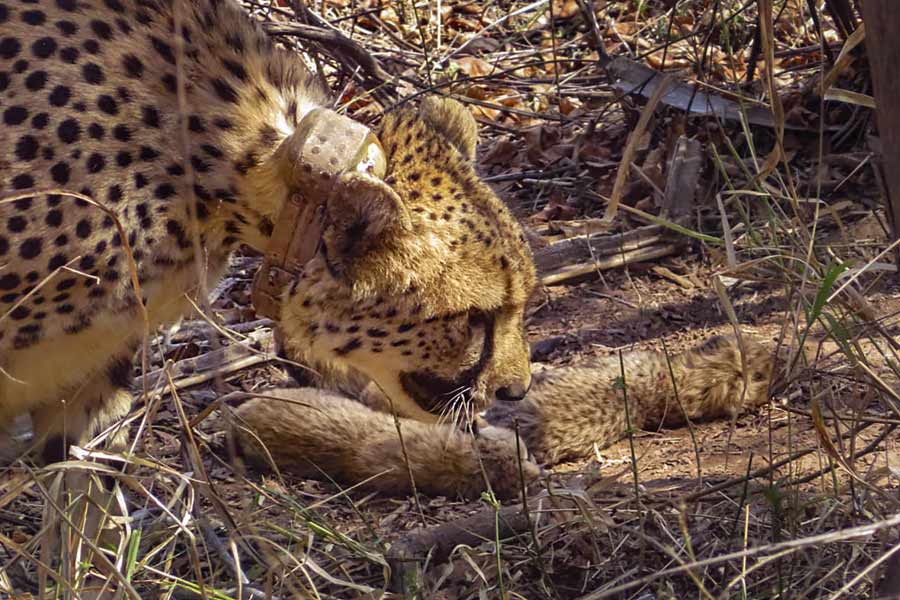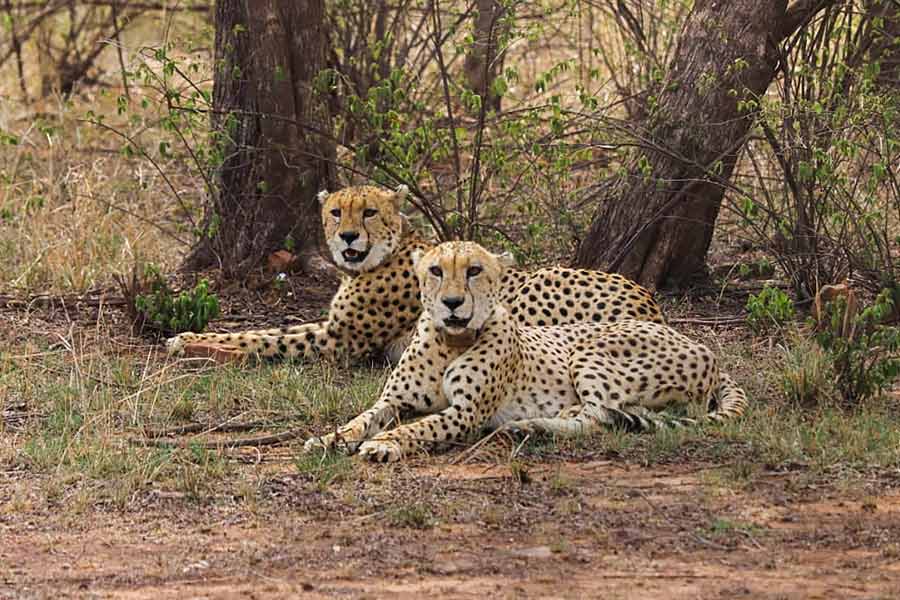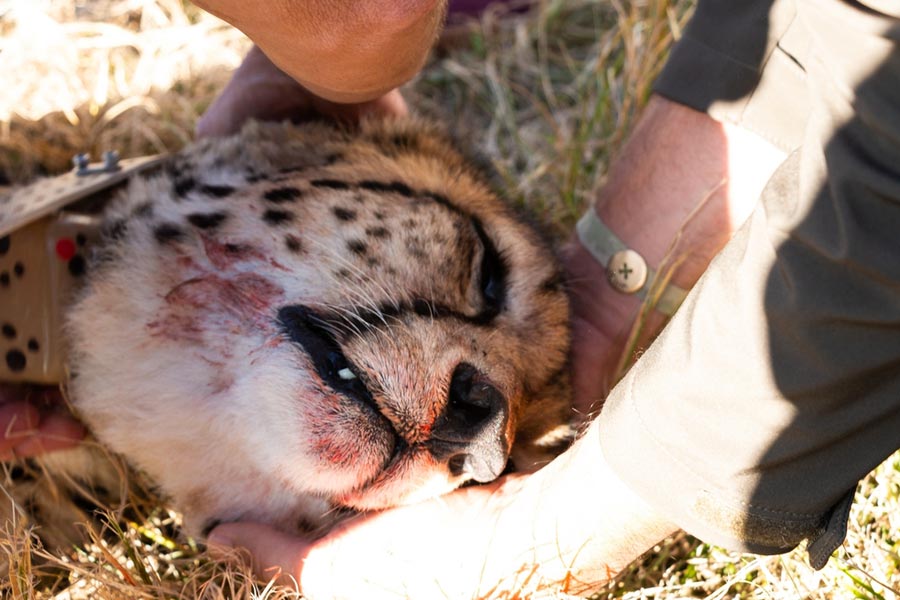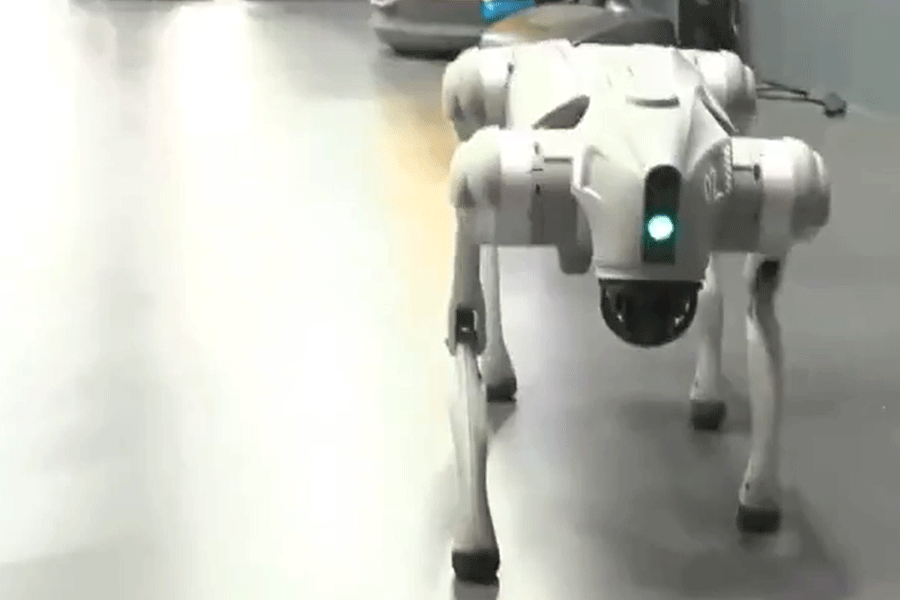A female cheetah, Jwala, strayed from her home in Madhya Pradesh’s Kuno National Park (KNP) into neighbouring Rajasthan, marking the first confirmed inter-state movement since the creation of India’s first cheetah corridor.
She was rescued and brought back to Kuno after being found in a human-dominated area, PTI reported.
According to a Cheetah Project official, Jwala crossed the inter-state boundary during the day on Monday, travelling nearly 100 km from Kuno into Rajasthan’s Sawai Madhopur district.
On arrival, she hunted a goat inside an enclosure at Baler village, about 130 km from Kuno.
“On August 12, female cheetah Jwala was rescued from Kareera Kalan village in Sawai Madhopur district of Rajasthan, under challenging conditions. With an enormous crowd of onlookers, the cornered animal was rescued after darting,” an official said.
The official added that the cheetah monitoring team had to physically handle the animal, removing the goat kill from the enclosure to confine her and prevent any conflict. “Considering the safety of the animal and the people, a decision was taken to rescue the cheetah,” the official said.
Jwala was safely returned to Kuno later that day. The park management expressed gratitude to Rajasthan’s police and forest staff for their assistance.
Jwala, who wears a radio collar, had been seen with her cub in Sheopur district’s Manpur area on Sunday. On Monday, she separated from the cub and travelled along the Chambal riverbanks before entering Baler village.
This incident comes after Rajasthan was formally included in India’s first inter-state cheetah conservation corridor in May this year. Covering 17,000 sq km...10,500 sq km in Madhya Pradesh and 6,500 sq km in Rajasthan, the corridor links Kuno National Park with Gandhi Sagar Sanctuary through protected landscapes including the Mukundra Hills Tiger Reserve.
Seven Rajasthan districts, including Sawai Madhopur, are part of the project.
The corridor aims to enable natural and uninterrupted movement of cheetahs between habitats and restore grassland ecosystems.
Population status at Kuno
At present, Kuno hosts 26 cheetahs, nine adults (six females and three males) and 17 Indian-born cubs, all reported to be in good health. Sixteen of them roam freely in the wild, regularly hunting and coexisting with other predators.
Two male cheetahs relocated to Gandhi Sagar Sanctuary are also reportedly doing well.
India’s cheetah reintroduction project began with the release of eight Namibian cheetahs into Kuno on September 17, 2022, the first intercontinental translocation of the species. Twelve more cheetahs from South Africa arrived in February 2023.
‘Cheetah introduction project in India-Unjust’
While the corridor and translocations are presented as a conservation milestone, the project has drawn criticism. A paper, published February 3, 2025, by Yashendu C. Joshi of the Centre for Wildlife Studies in Bengaluru and co-authors from South Africa, argued that the African cheetah translocation to India was not “environmentally just” and raised ethical concerns.
Evaluating earlier reports, the researchers highlighted what they called “justice shortcomings” in the methodology, such as reliance on visual assessments of economic well-being without direct community input, and an oversimplified assumption that “predominantly Hindu culture” ensures tolerance toward wildlife.
“The lack of research on animal welfare in the legal trade of wild animals needs to be addressed, and we call on conservationists to give comprehensive consideration to the social and animal welfare implications of translocation work,” the authors wrote.
Now, officials however maintain that cheetahs at Kuno are adapting well to their new environment, with movements like Jwala’s seen as signs of the species exploring available habitat.

